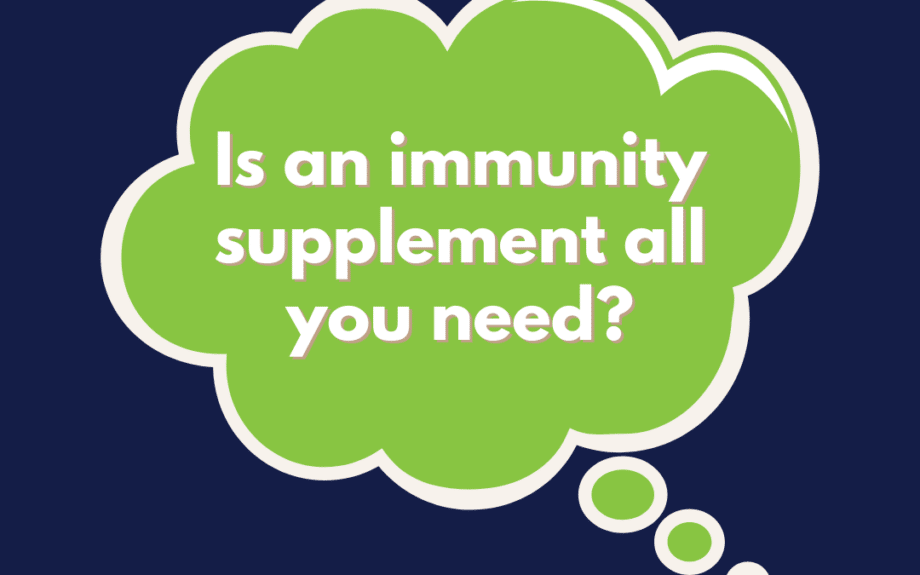Conversations regarding immune health and wellness have increased. So, you may be asking yourself: how can I best support my immune system?
Our health prospers when we foster our wellness holistically. Intentionally creating routines that support your health and wellness allows you to live in a body that serves your individual needs. Create consistent sleep habits; eat nutrient-dense whole foods; hydrate consistently; find sustainable movements; implement practices that allow your mind and spirit to rest. All of these things support our overall health, wellness and immunity.
Supporting and retaining immune health allows our bodies to thrive. If you have implemented the natural practices outlined above—but want to further nourish your immune health—consider supplementation! Supplement ingredients vary. Today we will discuss whole ingredients to look for when finding an immunity supplement to partner with your existing immune health practices.
As always—if you have concerns about your personal needs, reach out to your healthcare provider!
Common Ingredients for Immune Support
Supplementing exists to close nutrient gaps—it is a supportive measure in health and wellness. You will see the greatest effect when supplementing alongside healthy lifestyle choices: maintaining consistent sleep; consuming whole foods; receiving adequate hydration; moving your body; and implementing practices that support your mental and spiritual health. Supplementation works in conjunction with all of these practices to holistically support immune health. Remember, you are not what you take. You are what you absorb.
Consider these nutrients for immune support:
Vitamin C
This nutrient offers broad-based value within the body. Vitamin C protects cells from free radicals and aids in the natural healing process. Our bodies do not naturally create Vitamin C, so we must intentionally consume it to support these immune processes. Vitamin C is found in citrus fruit, tomatoes, potatoes and greens. Whole food diets support vitamin sufficiency.
Echinacea
This herb may support immune health by encouraging standard inflammatory responses. We do not naturally consume echinacea in standard, whole food diets. However, many immune-based supplements integrate the herb. Supplements without absorption catalysts may excrete the herb early and nullify potential benefits.
Immune Support with Astragalus
This herb may support immune health by protecting cells from free radicals and encouraging standard inflammatory responses. Supplements that include astragalus utilize the root of the herb. Astragalus is commonly used in eastern health and wellness practices.
Olive Leaf
We see this plant extract in many immune-based nutraceuticals. It supports immunity by protecting cells from free radicals and by supporting healthy environments for body cells. Olive leaf extracts are commonly used in eastern health and wellness practices.
Fulvic Acid for Immune Support
This chemical compound supports standard inflammatory responses throughout the body. Fulvic acid also supports nutrient absorption. When supplementing with fulvic acid pay attention to dosages. If you have questions about what dosage will best support you, reach out to your healthcare provider.
Supplementing allows us to close nutrient gaps. The vitamins, herbs and compounds outlined above are commonly found in immune health supplements. Health requires a holistic approach. Integrate what you resonate with and what supports your unique body.
If you have questions about your personal supplement needs and experiences—or questions about your personal immune health—reach out to your healthcare provider!

